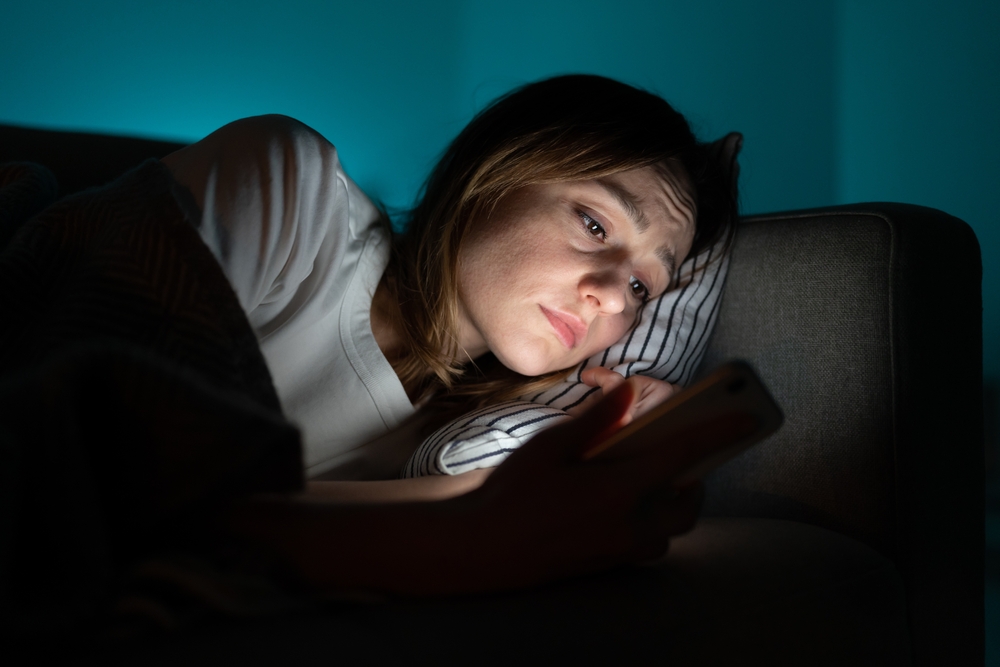Our society seems to become, day by day, more and more individualistic. Individualistic people try to satisfy their own needs and wants without concern for those around them. Liquid loves, fleeting emotions and unstable feelings.
Sociologist Zygmunt Bauman described love in all its facets and in particular emphasized the fear of binding oneself to someone. A continuous search for freedom in which there is no room to listen to the other.
Yes, because “ties have been replaced by connections. While connections require commitment, connecting and disconnecting is child’s play.” In fact, on social networks, relationships are easily broken, it only takes a “click” to get rid of a person and to make new acquaintances. In fact, relationships experienced in real life are much more complex and that is why many choose to experience online loves. A reality, that of the age of platformization, which shows us the face of loneliness and numerous phenomena that should give us pause for thought.
By now, ghosting and phubbing are increasingly discussed. In “ghosting” the person with whom we chat, in different instant messaging applications, suddenly disappears. No explanation and no clarification from him or her. The person who makes himself a “ghost” makes sure that he is no longer traceable. He does not respond to messages, calls, and cannot be found even on virtual platforms.
The term phubbing brings together the English words “phone” and “snubbing,” that is, the noun phone combined with the verb to ignore. The “phubber” is the one who snubs others, while the “phubbee” is the one who suffers the situation by seeing himself ignored. Smartphone addiction is closely related to phubbing. Some people prefer to control the smartphone and not interact with others. This happens because of a determining factor “internet addiction” or the worry of missing something important on social or online, followed by the fear that our friends are doing something more stimulating than what we are doing.
Ilaria Solaini wrote an article, published in Avvenire, in which she reported some interesting data from a research conducted by Espad in 2023. “The phenomenon of ghosting involved more than one in ten students between the ages of 15 and 19, mostly girls (46%; M=27%). Among them, 14% (M=8.5%; F=18%) experienced both modes of the phenomenon by playing the dual role of ghost or ghoster. Friends were the main perpetrators of ghosting (55%), followed by acquaintances (36%), partners (26%) and relatives (2.4%).”
As well as ghosting, phubbing turns out to be widespread “40 percent of male and female students under the age of 19 responded that they also often look at their phones in the company of friends or family members (males: 36.9 percent; females: 43.4 percent).”
The agi.it portal explained another aspect of pubbhing namely partner-phubbing so defined by the psychological science journal “State of Mind.” “Partner-phubbing is negatively related to relationship satisfaction precisely because using a phone while the partner is with us creates a situation in which one is physically present but not mentally present. This phenomenon causes feelings of “absence-presence” or being “alone together.” But that’s not all. “A 2021 study by Beukeboom & Pollmann attempted to analyze the negative effects of phubbing in romantic relationships, specifically in relation to relationship dissatisfaction. The results of the study point out that the more you use your phone in the presence of your partner the less satisfying the relationship is.”
It is evident that individuals are not only distracted, but tend to isolate themselves and live within the virtual world. Those who are victims of phubbing suffer and feel excluded. Obviously, this phenomenon worries experts and scholars.
Researcher Sonia Cerrai, who works in epidemiology and health services research at the National Research Council’s Institute of Clinical Physiology in Pisa, clarified that there is “increasing evidence of the urgency to adopt an approach that embraces the complexity of the adolescent universe, focusing on teens, their needs and the need for greater awareness.”
Adults need to help young people understand that freedom is fundamental, but it cannot be a liquid, selfish freedom that is an end in itself.
The importance of responsibility to others needs to be rediscovered. Relationships must be stable and solid in the face of the daily problems we all face. Trying to listen to others and love them is one of the most difficult challenges to undertake.
Lev Tolstoy wrote an extraordinary text entitled ‘Love one another.’ There is a sentence in this text that we need to meditate on, “To build a better life, individuals must become better,” and I believe that we cannot continue to live thinking only of ourselves. Then, we must commit ourselves and aim for true love that is not afraid of anything or anyone.
The article Online relationships: between ghosting and phubbing comes from TheNewyorker.

